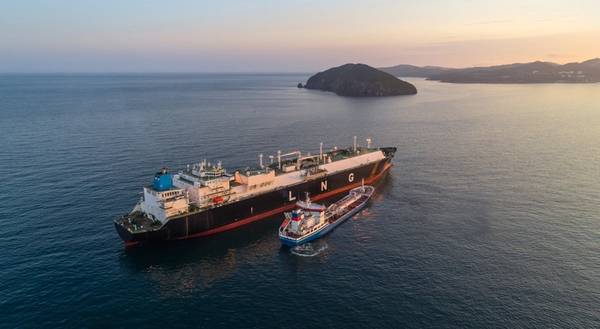
Disruption to shipping in the Red Sea region will impact QatarEnergy's deliveries of liquefied natural gas (LNG) but not its production, CEO Saad al-Kaabi said on Monday.
"It's only going to take longer to get it there. But it will not reach a point where we have to stop production because there isn't any ship. We're okay," Kaabi said at a groundbreaking ceremony at the Ras Laffan petrochemical complex.
Kaabi added that ships having to divert away from the Red Sea and travel around Africa instead was not ideal as this added cost and took longer.
One of the world's largest exporters of LNG, QatarEnergy said in January that it had stopped sailing via the Red Sea citing security concerns.
Yemen's Iran-aligned Houthis have attacked shipping in the Red Sea and Gulf of Aden since November in what they say is an effort to support Palestinians in the war with Israel.
"Whether you talk about LNG, crude, LPG condensate, it’s exactly the same thing for all these products," Kaabi said.
"It’s going to add cost, it’s going to add time and it’s also going to add constraint with actual deliveries."
Sailing from Qatar to Europe via Africa's Cape of Good Hope could add around 9 days to the 18-day voyage.
Kaabi, while noting most of QatarEnergy's production goes to Asia, said he hoped the Red Sea problem would be resolved with an end to fighting in Gaza.
"I think when that stops, according to what we hear from the Houthis …hopefully there’s a ceasefire soon ...so that the economic impact on the entire world stops."
(Reuters - Reporting by Andrew Mills; writing by Maha El Dahan; editing by Bernadette Baum and Jason Neely)